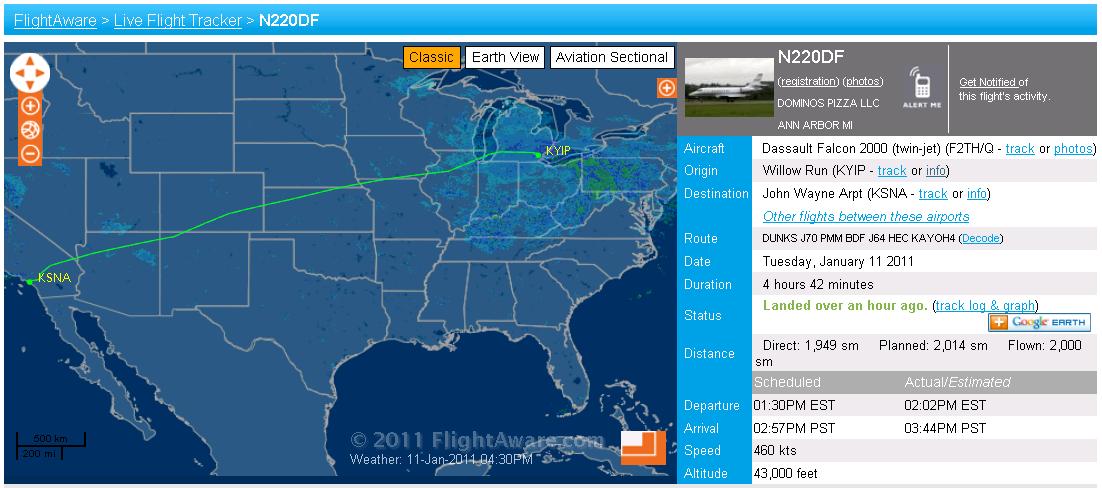An ESPN blog entry from today linked out to FlightAware for insight on potential candidates being interviewed for the now filled head coaching job at the University of Michigan. According to the article, a private jet with tail number N220DF registered to an owner in Ann Arbor, Michigan has made 12 flights since the beginning of January as Michigan has been conducting interviews for a new head football coach.
FlightAware publishes aircraft activity logs and registration information which are obtained as public records from the FAA. Learn more about FlightAware in our previous blog entry.
Aircraft tracking sites like FlightAware assist with the verification of an individual's whereabouts - whether that individual is the athletic director at a major university or a high ranking corporate officer dropping in on a potential acquisition or merger target. When combined with other data points (i.e., a coaching search is underway or the plane landed in the small airport next to the company's biggest competitor), this information could be used to deliver solid analysis.
Aside from military and government sensitive flights, flight information collected by the FAA is considered public information because taxpayers pay for air traffic controllers, runways, towers, and other resources utilized by both commercial and private pilots.
Some aircraft owners, however, register on a block list to prevent disclosure of their flight activity. The National Business Aviation Association (NBAA) administers the Block Aircraft Registration Request (BARR) program, through which private aircraft owners can request one of two types of blocks:
- FAA-level blocking: Under this scenario, the NBAA sends its block list to the FAA, which does not release flight information to web sites, like FlightAware, that draw on Aircraft Situation Display to Industry (ADSI) data to inform their live tracking capability.
- ADSI-level blocking: In this case, the NBAA sends its block list to flight tracking sites, which are required to block those planes on their web sites even though they receive the data from the FAA.
These block lists have long been unavailable to the public because the NBAA claimed that aircraft owners' safety could be jeopardized if their whereabouts could be tracked. Recently, that's changed. In December 2008, the organization ProPublica sent a public records request to the FAA to release the planes on the block list. The FAA agreed to release it by June 2009, but the NBAA filed suit in federal court to block release of the list. The judge ruled in favor of ProPublica, and the FAA soon released the list of 1,100 planes that requested FAA-level blocking. A list of planes that have requested ADSI-level blocking has not yet been released.

